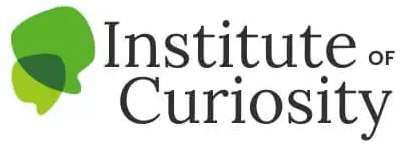Most leaders believe they’re skilled communicators. Yet research from Stanford shows that 9 out of 10 conversations are ineffective, and that doesn’t take stress into consideration. Add pressure into the mix, and communication breaks down even further: misunderstandings multiply, emotions flare, and performance slips.
Ineffective conversations are not just inconvenient; they’re costly, frustrating, and one of the biggest silent killers of leadership performance.
What sets leaders apart who consistently foster collaboration and results; even during high-pressure moments? Curiosity.
Why Most Leadership Conversations Fail Under Stress
Stress impacts communication. Even the most seasoned leaders fall into reactive habits, such as interrupting, defending, or rushing to fix problems. Pressure pushes leaders into “I’m right / you’re wrong” dynamics, causing teams to shut down, stifling psychological safety, and halting innovation.
Curiosity: Underrated Leadership Secret
Curious conversations flip this pattern. Instead of reacting defensively, curiosity equips leaders to pause, stay present, and actively listen.
Why Curiosity Works Under Pressure
Curiosity in leadership empowers you to:
- Understand perspectives different from your own.
- Ask open-ended questions that reveal new information.
- Uncover creative solutions beneath conflict or frustration.
- Build psychological safety, enabling your team to speak up and share ideas.
When leaders embody curiosity, they don’t just reduce stress; they turn tense moments into opportunities for clarity, connection, and growth.
The 3 Core Curiosity Skills Every Leader Needs
Want to make tough conversations easier and more effective? Practice these essential Curiosity Skills; especially under stress:
Be Present to Actively Listen
Focus on what team members are saying (and feeling), rather than preparing your reply.Choose How You Process Information
Notice your mental filters; shift from judgment or fixing/ solving to genuinely understanding.Ask Curious, Open Questions
Lead with “what” or “how” to invite new perspectives and prevent assumptions.
These are practical, learnable habits proven to change how leaders connect, even in the most difficult moments.

Curious Leaders Drive Innovation and Client Success
Curious leaders stand out. They rebuild trust after tension, uncover insights that stress would otherwise blind them to, keep collaboration strong, and deliver exceptional client experiences consistently; even on tough days.
Top benefits of curious leadership:
- Boosts accountability and trust
- Encourages thoughtful feedback and open dialogue
- Accelerates innovation and adaptability
- Strengthens team morale and resilience
- Improves overall leadership effectiveness and organizational performance.
Curiosity is not a soft skill but a competitive edge in today’s complex, fast-changing business world.
Ready to Develop Your Curious Leadership?
Start leading with curiosity and watch your conversations and results transform:
The Power of Curiosity Book: Teach yourself and your team step-by-step strategies to turn difficult conversations into opportunities.
- Team Development Workshops: Experiential workshops that build curiosity skills, trust, and collaboration.
- Executive Coaching: Personalized coaching to strengthen self-awareness, resolve conflicts, and elevate performance under stress.
- WE-I Profile Assessment: Gain data-driven insights into how you show up under stress and improve your emotional intelligence.
Curiosity is the leadership skill that turns pressure into performance. Learn it, practice it, and watch your impact grow.





